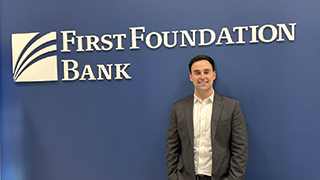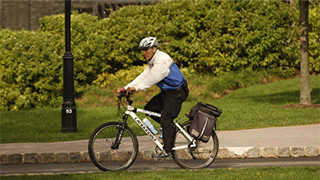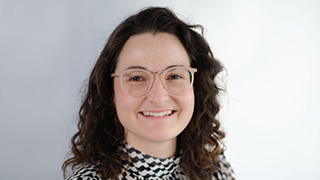Fulbrights Awarded to Two Seton Hall Professors
Thursday, March 11, 2021
Law Professor Jonathan Hafetz and Professor of French and Spanish Matthew Escobar were named Fulbright Scholars. Fulbright is held as the most widely recognized and prestigious international exchange program in the world.
According to Fulbright, which is a program of the U.S. Department of State,
In September 1945, the freshman senator from Arkansas, J. William Fulbright, introduced a bill in the U.S. Congress that called for the use of proceeds from the sales of surplus war property to fund the "promotion of international good will through the exchange of students in the fields of education, culture and science." One year later, President Harry S. Truman signed the Fulbright Act into law.
….Fulbright has been supported for more than half a century by the American people through an annual appropriation from the U.S. Congress and by the people of partner nations. The program—working with universities, schools, binational Fulbright commissions, government agencies, nongovernmental organizations and the private sector—actively seeks out individuals of achievement and potential who represent the full diversity of their respective societies and selects nominees through open, merit-based competitions.
Professor Hafetz was chosen to pursue issues of exigency under the constitution of Japan; Professor Escobar to undertake the first book-length analysis of the history of Latinos who worked in the multilingual Paramount film studios built in 1930 at Joinville, France.
"We fully support internationalization efforts for both our students and our faculty," said Provost Katia Passerini, Ph.D. "The Fulbright is an essential part of cultural understanding as well as global scholarship and this is not one, but two more examples that show Seton Hall to be the home of world-class scholars." She added, "In recent years, the grants, scholarships and prestigious fellowships have begun piling up at the University's doorstep – whether NIH or NEA, NASA, Guggenheim, Lilly or Fulbright – the awards are mounting in every School and College as the rest of the world is learning what we already know: there are many great minds at Seton Hall."
As part of his Fulbright Award, Professor Hafetz will assume the role of Visiting Professor at the College of Law and Politics at Rikkyo University in Tokyo commencing in September, 2021.
In addition to his teaching role and research on emergency powers and constitutionalism in Japan, Professor Hafetz said he "hopes to build bridges and establish future partnerships between Rikkyo University and Seton Hall, including by creating new opportunities for Seton Hall students and faculty to learn about law and legal education in Japan."
Professor Matthew Escobar
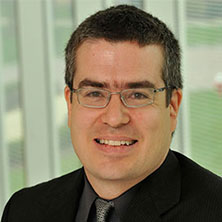
His research in Spain involves the history of Latinos who worked in the multilingual Paramount film studios at Joinville. He explains,
In 1930, at the dawn of the sound film era in Europe, Paramount built huge sound stages in Joinville, France (a few miles outside Paris). This preemptive strike was an attempt to control the entirety of Europe's emerging sound film industry by hiring many of its most prominent directors, playwrights and actors some of whom had worked in Paramount's studios in Queens or Hollywood.
I will do archival research for the first book-length study of the genesis of these studios while examining questions of transatlantic Latino identity in the politically turbulent 1930s as it emerges from the crucible of acerbic attacks from critics in Spain and Latin America and the indifference to cultural identity of the American studio.
Six years ago, for my first sabbatical in Spain, I finished a book-length monograph (entitled The Persistence of the Human: Consciousness, Meta-body and Survival in Contemporary Film and Literature, Brill-Rodopi, 2016) which focuses on a theory of personal identity I develop called the meta-body as it applies to Spanish, French and English language novels and film.
It was at that time that I also began the research for my current book project visiting archives in Britain, France, the U.S. and Spain. Since then, new materials have come to light in Spain and I will return there in the 2021-22 academic year for further research.
I have already uncovered important historical documents that have never been published or analyzed that help nuance and even contradict some of the extant narratives surrounding these unloved studios which nonetheless were the proving grounds for major directors, actors and cinematographers who, upon returning home, played a role in the sound cinema production of their own countries.
Professor Jonathan Hafetz
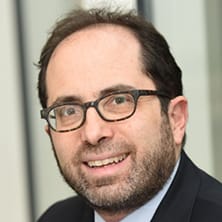
Professor Hafetz is the author of the books, Punishing Atrocities through a Fair Trial: International Criminal Law from Nuremberg to the Age of Global Terrorism (Cambridge Univ. Press 2018), and Habeas Corpus after 9/11: Confronting America's New Global Detention System (NYU Press 2011), which received the American Bar Association's Silver Gavel Award for Media and the Arts, Honorable Mention, and the American Society of Legal Writers, Scribes Silver Medal Award. He is also the editor of Obama's Guantanamo: Stories from an Enduring Prison (NYU Press 2016) and the co-editor (with Mark Denbeaux) of The Guantanamo Lawyers: Inside a Prison Outside the Law (NYU Press 2009).
He is also the recipient of a prior Fulbright Award which he describes as a "transformative":
I previously received a Fulbright scholarship to Mexico from 1995-96 to study Mexico's national social welfare policy. The experience, prior to my attending law school, was transformative. It helped inspire my future academic and legal work over the last twenty-five years, which has focused significantly on immigration and cross-border issues. It also enabled me to develop longstanding professional and personal connections with colleagues in Mexico and nourished my interest in Mexico and U.S.-Mexico relations.
For his most recent Fulbright research in Japan, Professor Hafetz explains,
My research will examine emergency powers and constitutionalism in Japan. The concept behind emergency powers is that a state, when faced with an exigent threat to public safety or security, may act outside the normal legal process, including by curtailing individual liberties and restricting court review. These powers are intended to last only for the duration of the exigency, but they often last considerably longer, causing an erosion of baseline legal norms. Some constitutions recognize emergency powers and provide a framework for their invocation; others, including the constitutions of Japan and the United States, do not.
My research will explore how a country like Japan, which lacks a provision for emergency powers in its constitution, has nonetheless sought to respond to exigencies through other means. I will examine how Japan's approach to emergency powers is shaped by World War II and other historical forces, and how these forces continue to impact constitutionalism in Japan today. The issue of emergency powers is particularly important given the pressure to respond forcefully to the COVID-19 pandemic, natural disasters, and shifting power dynamics in the region.
My research, moreover, incorporates a comparative element, as I will situate my study of emergency powers in Japan within the broader academic discourse on the subject. Conducting this research in Japan will give me access to a wide variety of resources, the ability to consult with Japanese scholars and experts, and a richer understanding of the context in which current debates over emergency powers are playing out. I will also teach an international human rights seminar and co-teach a seminar with a Rikkyo faculty member on government responses to the COVID-19 pandemic.
Students interested in applying for a Fulbright Scholarship or pursuing other prestigious fellowships are encouraged to visit Seton Hall's Prestigious Fellowships webpage for access to support and information on process as well as news about prior recipients and webinars that offer general advice and comments on strategy for those wishing to pursue these opportunities of academic distinction.
Categories: Education, Nation and World

